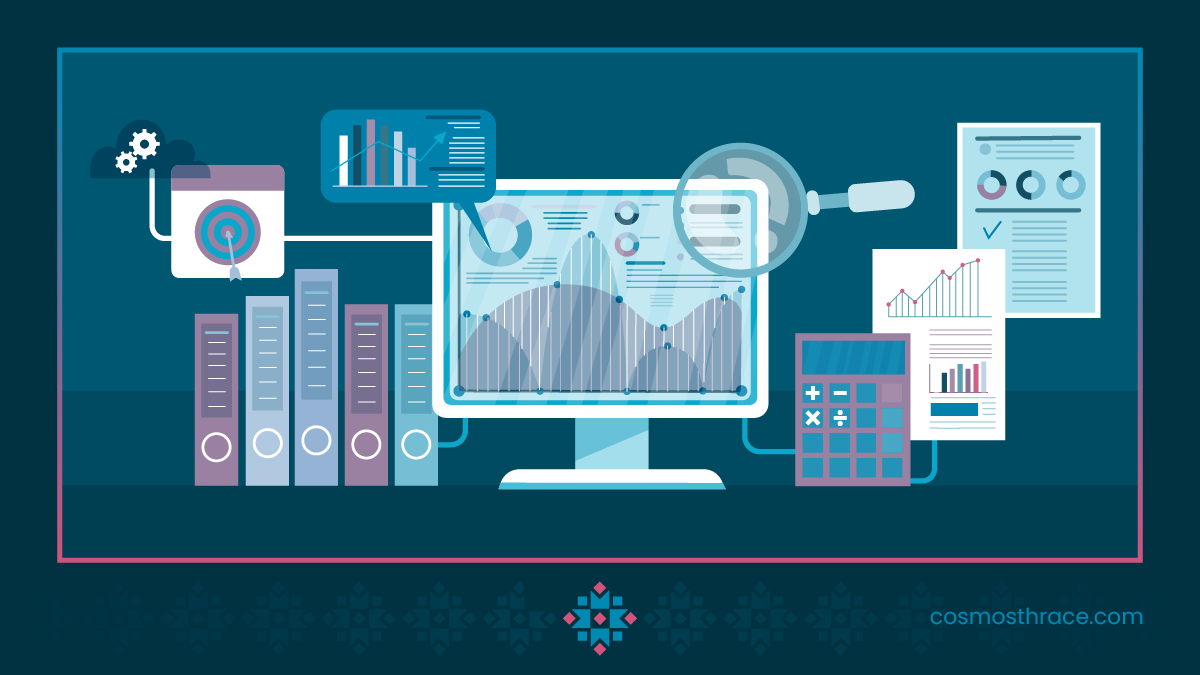Business Intelligence has the power to transform raw data into meaningful insights for business growth and efficiency. This allows executives to have a complete view of the overall performance of their business and the different departments. Nevertheless, there are certain technical and business terms in BI reporting that team members in organizations need to know. That is so because mastery of the key terms in BI reporting can significantly enhance the ability to leverage it effectively.
The foundation of BI Reporting Terminology
There are three core building blocks in Business Intelligence: Data Ingestion, Data Warehousing and BI. Data Ingestion is the process of combining data from different sources and bringing it together to provide a unified view ultimately. Data Warehousing is the process of storing and staging information and optimizing it for access and analysis in a company. Finally, BI is the visible portion of the business data systems that enables access and delivery of information to business users. We will look at the key terms for each of the three parts.
Data Ingestion Key Terms
Structured data— Structured data refers to data that adheres to a specific format or schema, making it easily searchable and organized in databases. It is typically stored in relational databases and is characterized by its high level of organization, such as in rows and columns, which makes it easy to enter, query, and analyze.
Data governance—A process that enforces consistent definitions, rules, business metrics, policies, and procedures for how a company treats its data. It can encompass many areas including data creation, movement, transformation, integration, and definitions, all the way to consumption. A data governance program helps the organization treat its data as a corporate asset and maximize its value.
Data cleansing—Finding and fixing errors, inconsistencies and inaccuracies in data. The level of cleanliness required depends on each industry’s best practices. Tools for Data quality are used for the more complex processing while data integration tools perform basic processing.
Data Warehousing Key Terms
Data quality—Achieved when data embodies the “five Cs”: clean, consistent, conformed, current, and comprehensive.
ETL (extract, transform, and load)—The process in which data is taken from the source system, configured, and stored in a data warehouse or database. ETL tools automate data integration tasks.
Data preparation—The core set of processes for data integration. These processes gather data from diverse source systems and transform it according to business and technical rules. Afterward, another process stages it for later steps in its life cycle when it becomes information used by information consumers.
Business Intelligence Key Terms
Analytics—The examination of information to uncover insights that give a business person
the knowledge to make informed decisions. Analytics tools enable people to query and analyze information using data visualization to communicate findings in an easy-to-understand way. There are different analytical types: descriptive (what happened), diagnostic (why it
happened), predictive (what is likely to happen) and prescriptive (what actions should be taken).
Reporting—Collecting data from various sources and presenting it to business people in an understandable way so they can analyze it. This is the core BI style. Reports were initially static with predefined formats but have become interactive and customizable.
Data visualization—Visually presenting data, such as graphs and charts, helps business people see insights they might not otherwise discern from tabular data. Data visualization is only as effective as the quality of the data it draws upon.
Dashboards—This BI tool displays numeric and graphical information on a single display, making it easy for a business person to get information from different sources and customize the appearance.
Understanding the key terms in BI reporting is crucial as they form the language through which data insights are communicated. This understanding is not just beneficial for data analysts but also essential for business decision-makers. Knowing proper BI terminology enables effective team communication, facilitates a better understanding of reports and dashboards, and empowers decision-makers to ask the right questions, leading to informed strategic decisions.
Contact us and let’s help you in your BI journey! However, if you want to learn more about our capabilities, check out our services page.


